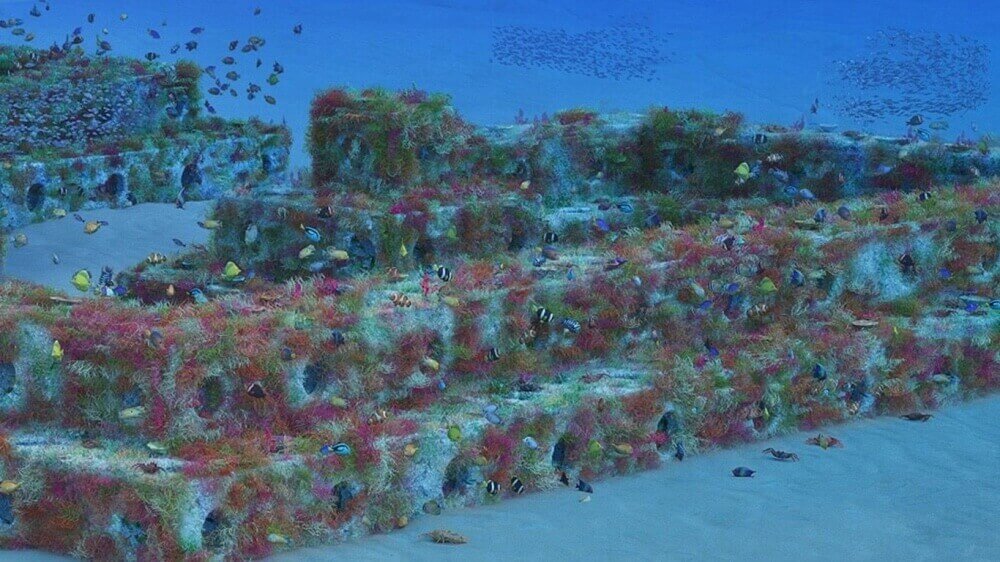Artificial reefs are vital for protecting offshore wind farms from tidal erosion. But the plastic-based reefs can also be detrimental to the ocean. One company is working to reduce the amount of plastic present in the ocean with its innovative plastic-free blocks—called Reef Cubes.
Engineers use artificial reefs—concrete blocks and rock or grout bags—to secure the bases of turbines. They also protect other underwater technologies like cables, pipelines, and monopiles.
The artificial reefs are placed directly onto the seabed. But they are often riddled with plastic and are viewed as marine waste by some environmental groups. They must also be eventually removed and recycled.
Sustainable Artificial Reefs
The U.K.-based eco-engineering startup ARC Marine’s award-winning Reef Cubes do the same job—minus all the plastic.
In lieu of plastic, the cubes are composed of 100 percent recycled aggregate and sand from the quarrying industry.
Reef Cubes are a more sustainable option because they produce 90 percent fewer carbon emissions than their plastic- and cement-based counterparts. According to the company, the cubes also enhance the “biological sequestration of carbon into the ocean.”
Promoting Marine Biodiversity
In addition to promoting sustainability, ARC Marine’s Reef Cubes have a number of other ecological benefits.
Approximately 70 percent of coral reefs are currently under threat. Reef Cubes can help combat coral reef destruction because they are capable of stimulating biogenic reef creation.
“Reef cubes accelerate reef creation and help repair ecosystems that have been destroyed from centuries of bottom trawling and dredging,” Tom Birbeck, ARC Marine’s CEO and founder, said in a statement.
“The global increase in offshore wind demand provides an unprecedented opportunity to rebuild rocky reef habitats around offshore construction projects which historically have caused damage and often deploy toxic and plastic-laden materials,” he added.
Reef Cubes create and restore complex marine biodiversity. Along with protecting pipelines, they provide marine life a safe place to live. Due to their interlocking design, the cubes provide sufficient living spaces for underwater creatures like lobsters, crabs, and fish. The spaces also provide nursing and spawning grounds for the aquatic species.
They also feature a porous surface, allowing marine plants to flourish. And unlike their plastic counterparts, Reef Cubes don’t have to be removed.


